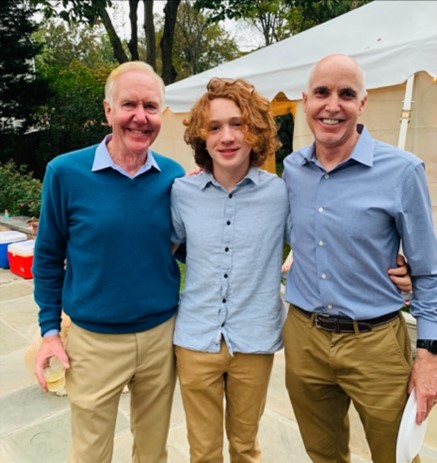A Day at a Time
I was lost when I moved to the US. The everyday things, like cashing checks and casual conversations, left me spluttering as I fought back the feeling that coming to America was a mistake.
“How are you?” The clerk at the pharmacy would ask. Do you respond? Are they curious or do you just go about your business?
I only felt worse when my teacher asked if my parents were coming to Parent/Teacher meetings. The idea that I would be the one attending was ludicrous, but looking around at the swarm of loving parents made it even harder to fathom. It’s true that for those first few years I had a host family, but that word “host” was a constant reminder that I might have a bed and decent food, but I wasn’t home. Most nights, I found myself lying awake, wide-eyed and reminiscing about my “former life.” My parents, familiar food, clear pathways, and Tianyi—my little brother, whm I missed most of all. I remember the last time we saw each other, when I took him to an ice rink, pushed him carefully down the ice, and watched his confidence soar toward the ceiling. The next day, I’d roll out of bed and begin another day full of lonely meals and empty conversations.
The Bank of America call center became my lifeline in this strange new place. I activated my first debit card through customer service; this seemed like a precious opportunity, an everyday experience that was truly “American.” Only I continued to dread that how-are-you question.
“How can I help?” They chimed.
Phew. I found myself not only reciting my card number but spilling out every financial question: Why do we need checks? How do you wire money from China?
Though anxious, I felt my words flowing. There’s something easier about speaking into the void of a cell phone.
After a few more months, I still needed regular conversations with customer service, but I stopped waiting outside pharmacies and convenience stores. I didn’t need any more muted pep talks to psych myself up, and this confidence opened the door to other oddities of American life. I decided to try out for the school hockey team and there I found my tribe. These new friends were welcoming. It didn’t matter that my English wasn’t perfect and that I couldn’t cash a check. I wasn’t the best but at least I was big, and those moments—a big game, gliding, hitting—they made me forget that my parents weren’t in the stands.
The idea gradually dawned on me that “Yes, I can do it.” I made it this far. I picked up English idioms, built a community, gathered a small group of students interested in learning Mandarin, and even started offering the obligatory “How are you?” It’s a thrilling experience to realize you have two homes. The first might be more familiar, but the second is warm, exciting, and challenging.
Today, I have a new test to my American life. My parents and brother moved to the US. They don’t speak English, and they barely know anything about the culture. It had taken me years to get used to it, to adapt to burgers over baozis, warm pleasantries rather than silence. Now I need to help three newcomers do the same.
Tianyi, my brother, sits beside me in the same classroom I studied in years before. He’s optimistic and friendly.
“What’s he saying?” He asks as my parents look questioningly over his shoulder. He’s excited and this gives me hope. From those early moments, like when I first taught Tianyi how to skate, I knew he was different. Those excited squeals and un-fearing confidence… Tianyi can do what it took me years to do. He can acclimatize and learn, find his tribe, and find a home. Rather than feelings of isolation, I get a swelling of pride; this PT meeting will be better.

